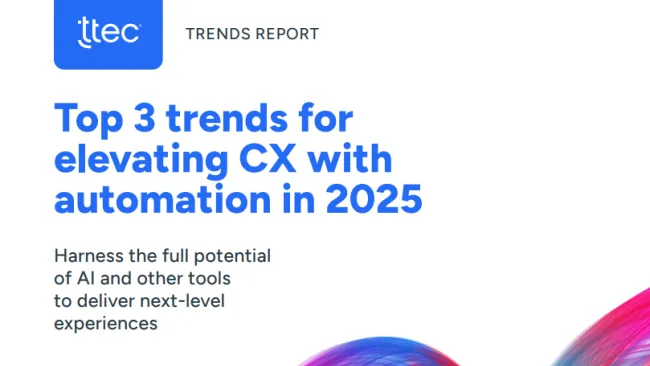Trust is one of the most valuable assets we can give each other. And sometimes we don’t realize its value until it’s gone.
In the post Facebook scandal world, trust and data haven’t exactly gone hand-in-hand. Following the (now dismantled) Cambridge Analytica data leak, a Business Insider survey found that 81 percent of participants are extremely unconfident as to whether Facebook would protect their data and privacy.
But as the smoke clears around Facebook and it rebuilds, industries are beginning to rethink how data is shared and what information means to their customers. If executives want to maintain trust and continue to profit from the potential of personalization with data, there needs to be a compromise.
This is becoming especially true for brands in competitive markets that need to create clear value and purpose with how their customers’ data is treated. Remember, there are only a few social media giants. People may be angry at them, but there’s little else to switch to. For retailers, one mistake in your company’s data treatment opens the door for competitors looking to pick up the pieces.
In order to build a better future with data, here are three strategies for businesses to consider approaching a balance between personalization and customers, data privacy, along with how they can learn from the mistakes now in the spotlight.
1. Give only straight talk
A large part of this discussion is about being ethical. For every company that collects mountains of personal data and information there is a need to be clear about what is being done with it. The recent controversy has left people nervous about their information, and audiences are reevaluating their idea behind shared personal data. Aside from the pervasive mistrust of Facebook, a Reuters survey in March of this year found that over a quarter of those interviewed do not trust Yahoo!, Apple, Microsoft, or Google to obey laws that will protect personal information.
Executives need to encourage a dialogue between their brand and customers to fully evaluate what data is being used and how it’s being applied in an ethical manner.
Already we have seen several major companies updating their policies toward privacy and data, and many are trying to create awareness of their brands’ data use in more clear and precise statements.
In Europe, the new GDPR rules, which took effect in May 2018, are rewriting the relationship between data and companies with new punishments and rules. They include heavy fines for companies hat mistreat their users’ data, such as not allowing people to erase desired personal data.
For example, the cloud software company Slack, in compliance with the upcoming GDPR, shared on its website a plan to follow the new regulations. This included outlining applications such as profile deletion tools that allow customers to request the termination of information, as well as new opportunities to transfer data safely across channels.
In early April of 2018, Google released a new privacy policy that would go into effect following GDPR. What this statement does well is its straightforwardness. With a clear manner it tells users how we collect your data: videos watched, purchasing activity, ad interaction, etc., and we’re going to use it for developing and providing new services.
Additionally, the plan is strengthened by catchy visuals and tastefully cartoonish videos that help illustrate how Google interacts with information. It puts it in a perspective so that even younger users can understand how their data is treated during these times of deconstruction.
2. Create value
More to the point, Google’s proposed plan tells users the meaning of their data in the grand scheme of things. The company establishes a value exchange for privacy and personalization.
While with Google it may be more obvious as to why a customer would comfortably give over information for their unique services, i.e., Google Analytics, Maps, Search, there still is this general desire for personalized service.
A recent study by Vision Critical found that 80 percent of U.S. respondents would be OK with sharing personal information if it leads to personalized marketing messages (only 16 percent were comfortable sharing with third parties). And so, brands need to make their data offers tantalizing enough that people would give away some privacy in return for something compelling. The company needs to articulate how having information benefits customers and how their data enriches their experience through that service, creating a win-win.
For example, retail companies, especially e-commerce ones, collect enormous amounts of data through transactional information. This has been a gold mine for companies such as Starbucks and Dunkin’ Donuts, which created robust reward programs. They utilize and observe customer preferences to create offers that encourage the use of the program based on the value that’s created. This has helped lead to a 12 percent increase in active Starbuck Rewards members in 2018.
Apps and loyalty programs need to be rewarding, transparent, and up front about their relationship to customers. If your rewards app is asking to track your location, give meaning behind it. Make it clear that it’s an added convenience to share data that will inherently make the experience more relevant.
Without clearly defining why data is being collected, customers may assume the worst and refuse to provide information. Research from InMoment found that 75 percent of customers see efforts of personalization to be mildly creepy, while 10 percent see it as very creepy.
3. Don’t ask for too much
As we stated before, personalization is one of the best fruits data gathering can bear for your company. But there is such thing as asking for too much, even if your company does clearly point out what it wants customers to include. In an SAP Hybris survey, 52 percent of customers said they were comfortable sharing their email address, while only 19 percent would share their active location, and just 11 percent will provide brands with their income.
This ties back in to explaining the value exchange with your customers— vagueness and data no longer mix well today. Include how the information you are asking for will be used ethically and securely for a better customer experience. Don’t collect it because it might be good to have later. Make sure you will use what you ask for in a way that’s beneficial to the customer, as well.
This isn’t the end
Even with the amount of drama and scandal evolving around data use and privacy making headlines, this isn’t the end of personalization. Instead, it’s a moment to learn from mistakes and revisit data strategy from the customer’s perspective.

















